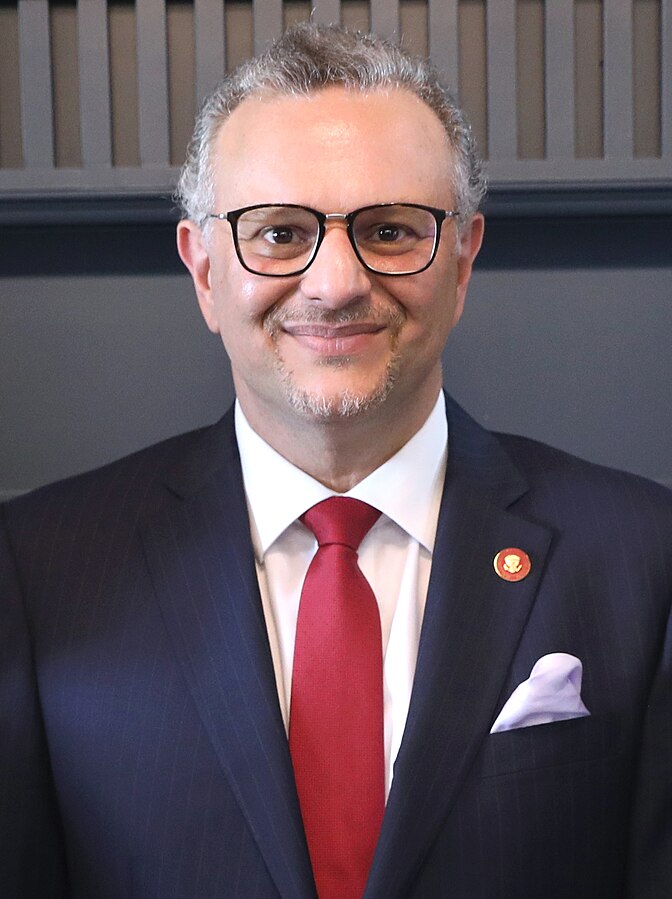Former a government in a multi-party parliamentary system is often a complex matter, particularly when very few parties of any substantial size are available to include. That’s the case in Lebanon, with the Trump Administration adding some difficulties by meddling in those government formation talks.
Lebanon has 128 MPs, so PM-designate Nawaf Salam will need at least 64 of them to form a working government. Though support for Salam’s designation was broadly accepted by most parties, the distinction between that and actually joining the government can be quite substantial.
Salam is a Sunni Muslim, as is tradition for a Lebanese premier. But the largest party with any Sunni MPs, Forces of Change, only has 9 MPs. The four bigger parties are two Christian parties and two Shi’ite parties, with the Shi’ites aligned with Hezbollah and Amal Movement, respectively.

US advisor Massad Boulous. Image from Wikimedia
Normally a Lebanese government would include substantial representation from all religious lines, but the US is reportedly keen to exclude the major Shi’ite blocs, and wants the new government to deny them any cabinet positions.
Since each of Hezbollah and Amal’s parties has 15 seats, giving them no cabinet posts would be a non-starter. The talks were centering on the idea of giving one of those Shi’ite blocs the finance ministry. The US, however, is warning them against doing that.
President Trump’s advisor Massaad Boulos has been sending the messages to Lebanon, and they say that giving the ministry to either of the Shi’ite majors would hurt their chances of getting any foreign aid for reconstruction after the Israeli invasion and ongoing occupation.
The US seems to be leveraging planned Saudi aid to Lebanon for this meddling in cabinet selections. It is not clear, however, if the Saudis actually object to the idea of a Shi’ite finance minister in Lebanon, or if that is just a pet issue of the US.
The US has hoped that the new President Joseph Aoun and PM-designate Salam would dramatically weaken Hezbollah influence across Lebanon, extending into the cabinet. Yet Shi’ites are roughly a third of Lebanon’s population, and their MPs are centered heavily around those two main parties, so it would be difficult for Lebanon, with its talk of inclusion and history of multi-religious governments, could realistically cut them out, even if that is the US government’s goal.
It may be that the US is hoping that a Lebanon ruled by Christians and Sunnis only would be more palatable to neighboring Israel, but as we’ve seen with Israel’s recent military hostility toward Syria’s new Sunni Islamist-dominated government, there is no guarantee that would actually be the case.


